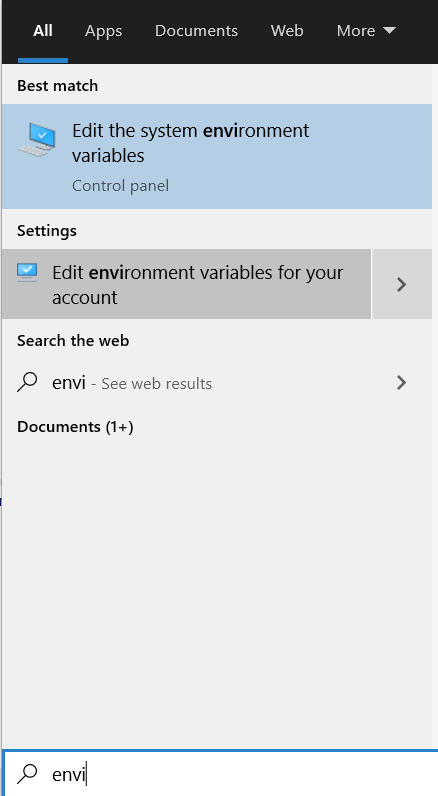- Note
- The steps on this page need to be done once on a given host machine
Host PC Requirements
To build applications using this SDK, one needs below host PC machine
- Windows PC
- Windows 10 64bit
- Minimum 4GB, >8GB RAM recommended
- At least 10GB of hard disk space
- Linux PC
- Ubuntu 18.04 64bit or higher
- Minimum 4GB, >8GB RAM recommended
- At least 10GB of hard disk space
- MacOS PC
- MacOS Ventura or higher
- Minimum 4GB, >8GB RAM recommended
- At least 10GB of hard disk space
Download and Install the SDK
- Download the SDK installer and install at below path on your PC
- Windows, C:/ti
- Linux and MacOS, ${HOME}/ti
${SDK_INSTALL_PATH} in this user guide refers to the path, including the SDK folder name, where the SDK is installed. Example, in Windows, ${SDK_INSTALL_PATH} will refer to the path C:/ti/mcu_plus_sdk_{soc}_{version}- You can also browse, download and install the SDK using TIREX as shown here, Using SDK with TI Resource Explorer.
Download and Install Additional SDK Tools
SysConfig
- The SysConfig download home page is, https://www.ti.com/tool/SYSCONFIG
- Download SysConfig 1.26.0 and Install at below path,
- Windows, C:/ti
- Linux and MacOS, ${HOME}/ti
Uniflash
- The TI Uniflash download home page is, https://www.ti.com/tool/UNIFLASH
- Download the latest Uniflash 9.3.0 and install at below path,
- Windows, C:/ti
- Linux and MacOS, ${HOME}/ti
Python3
- Attention
- It is important to install Python 3.x. If you have Python 2.x installed, then additionally install Python 3.x and make sure the command python or python3 indeed points to Python 3.x
-
All commands mentioned below should be typed in
cmd.exe command console in Windows, bash terminal in Linux and zsh terminal for MacOS
- Python scripts are used for below functionality in the SDK,
- Flashing files to the flash on the EVM via UART.
- Booting application on the EVM via UART
- Flashing files is the most popular reason why you would need python, so its strongly recommended to install it.
- In Windows,
- Install python from, https://www.python.org/downloads/windows/
- Confirm python is installed by typing below in a command prompt, make sure you see 3.x as the version
C:\> python --version
Python 3.9.1
- If above command fails, then add path to Python to your environment "Path" variable, by default python is installed at below path
C:\Users\{your username}\AppData\Local\Programs\Python\Python39
- To add a new path to your environment variables, goto "Windows Task Bar Search" and search for "environment variables for your account"

Environment Variables For Your Account
- Click on "Path" variables, click on "Edit", click on "New"
- Add the path to the folder where python in installed.
- It is strongly recommended to move the path "up" in your path list by clicking the "Move Up" button until the path is at the top of the list.
- Click "OK" to save the settings
- Close your Windows command prompt and reopen it and then check if python is visible by doing below
C:\> python --version
Python 3.9.1
- Check if the python package manager "pip" is installed, by default pip should be installed along with python.
C:\> python -m pip --version
pip 21.0.1 from C:\Users\{your username}\AppData\Local\Programs\Python\Python39\lib\site-packages\pip (python 3.9)
- Install additional packages via "pip" that are required. If you are behind a corporate firewall make sure to pass the server name and port for the proxy as shown below. If proxy is not needed keep
--proxy= as blank. C:\> python -m pip install -r requirements.txt --proxy={your proxy server web-link and port}
- In Linux,
- In MacOS,
OpenSSL
- OpenSSL is needed for signing the bootloader and application images when booting using a bootloader.
- Current signing scripts of SDK support both v1.1.1 and v3 of OpenSSL.
- With am263x, am263px, am261x, am273x OpenSSL v3 is recommended as v1.1.1 has reached END OF LIFE.
- Download and install OpenSSL as below,
- In windows,
- In Linux,
- In MacOS,
- So if you have Ubuntu 22.04, do below in MacOS shell to install openssl
$ brew install openssl
- Make sure that you install the v1.1.1 or v3 of OpenSSL. You can get the v1.1.1 or v3 packages from http://security.ubuntu.com/ubuntu/pool/main/o/openssl/. The packages required are openssl, libssl and libssl-dev
Test "openssl" by doing below on a command prompt and make sure there is no error. Example output on Windows is shown below,
C:\> openssl version
OpenSSL 1.1.1k 25 Mar 2021
OR
~/workarea/mcu_plus_sdk$ openssl version
OpenSSL 3.0.2 15 Mar 2022 (Library: OpenSSL 3.0.2 15 Mar 2022)
PRU-CGT
- Attention
- You MUST install PRU-CGT if trying to build PRU firmware.
- PRU-CGT-2-3 (ti-pru-cgt) should be installed at:
C:/ti/ when working with PRU firmware development.
Mono Runtime
- Attention
- You MUST install mono runtime only if you're on Linux
Code Composer Studio (CCS)
To download, install and setup CCS, follow instructions on this page, Download, Install and Setup CCS .
Download and Install Additional SDK Tools
TI CLANG Compiler Toolchain
- Download TI CLANG compiler toolchain 4.0.4.LTS from below link
- Install at below path,
- Windows, C:/ti
- Linux, ${HOME}/ti
